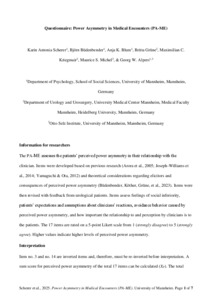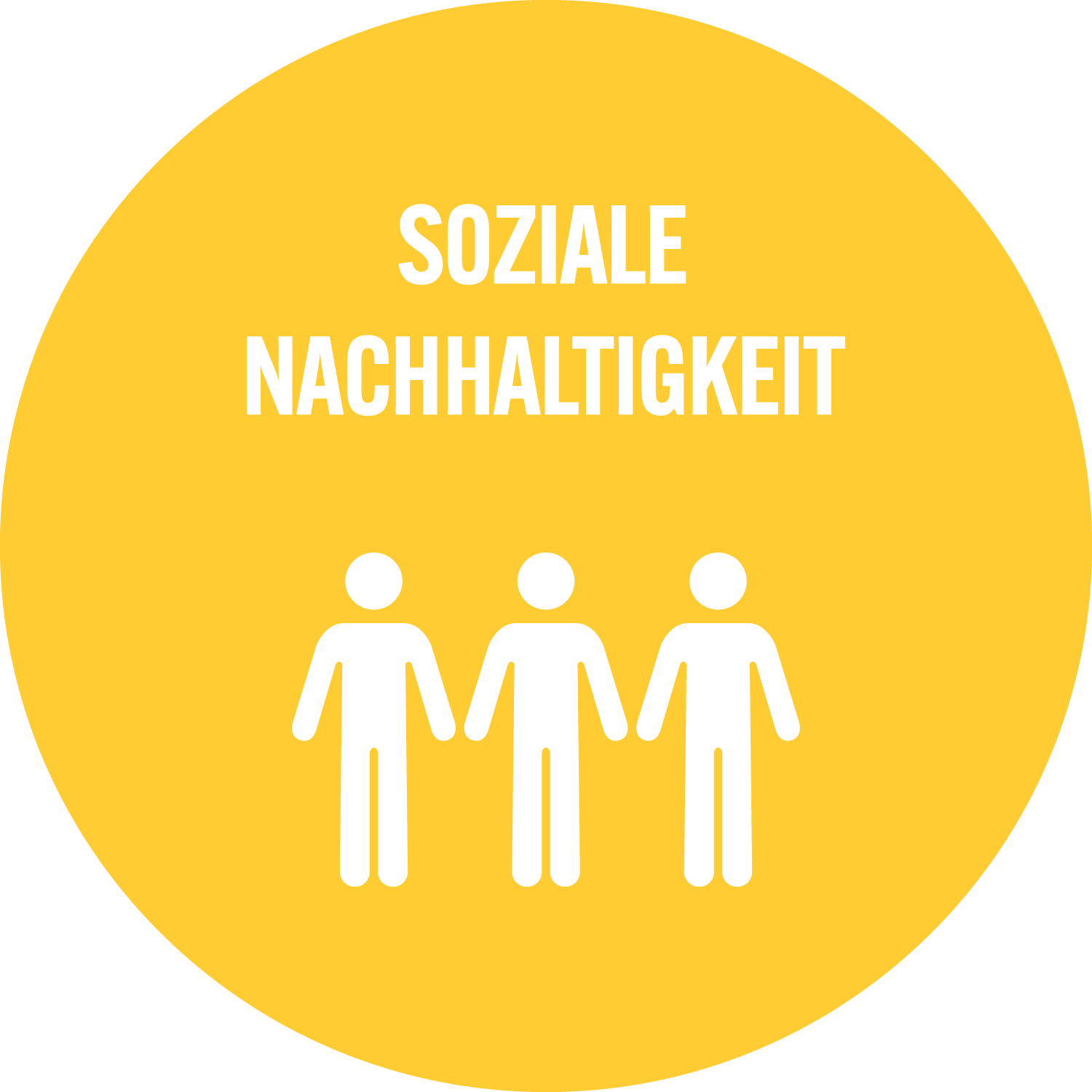|
Questionnaire: Power Asymmetry in Medical Encounters (PA-ME)
Scherer, Karin Antonia
;
Büdenbender, Björn
;
Blum, Anja K.
;
Grüne, Britta
;
Kriegmair, Maximilian C.
;
Michel, Maurice S.
;
Alpers, Georg W.
![[img]](https://madoc.bib.uni-mannheim.de/69576/1.hassmallThumbnailVersion/Scherer%20et%20al_2025_Questionnaire_Power%20Asymmetry%20in%20Medical%20Encounters%20%28PA-ME%29.pdf)  Vorschau |
|
PDF
Scherer et al_2025_Questionnaire_Power Asymmetry in Medical Encounters (PA-ME).pdf
- Veröffentlichte Version
Download (238kB)
|
|
URN:
|
urn:nbn:de:bsz:180-madoc-695768
|
|
Dokumenttyp:
|
Bericht
|
|
Erscheinungsjahr:
|
2025
|
|
Ort der Veröffentlichung:
|
Mannheim
|
|
Verlag:
|
Universität Mannheim
|
|
Sprache der Veröffentlichung:
|
Englisch
|
|
Einrichtung:
|
Fakultät für Sozialwissenschaften > Klinische u. Biologische Psychologie u. Psychotherapie (Alpers 2010-)
|
|
Fachgebiet:
|
150 Psychologie
610 Medizin, Gesundheit
|
|
Freie Schlagwörter (Deutsch):
|
partizipative Entscheidungsfindung , PEF , Patientenbeteiligung , Uroonkologie , Machtasymmetrie , PA-ME
|
|
Freie Schlagwörter (Englisch):
|
shared decision-making , patient-clinician interaction , patient participation , participation preference , power asymmetry , urology , urooncology , PA-ME
|
|
Abstract:
|
The PA-ME assesses the patients’ perceived power asymmetry in their relationship with the clinician. Items were developed based on previous research (Arora et al., 2005; Joseph-Williams et al., 2014; Yamaguchi & Ota, 2012) and theoretical considerations regarding elicitors and consequences of perceived power asymmetry (Büdenbender, Köther, Grüne, et al., 2023). Items were then revised with feedback from urological patients (Selbsthilfe-Bund Blasenkrebs e. V.) [self-help association for bladder cancer]. Items assess feelings of social inferiority, patients’ expectations and assumptions about clinicians’ reactions, avoidance behavior caused by perceived power asymmetry, and how important the relationship to and perception by clinicians is to the patients. The 17 items are rated on a 5-point Likert scale from 1 (strongly disagree) to 5 (strongly agree). Sum scores are calculated and transformed with min-max normalization to range from 0 to 100 (PA-ME Score) for comparability to other scores in the research field (e.g. API-Uro; Büdenbender, Kriegmair, Köther, et al., 2021). Higher values indicate higher levels of perceived power asymmetry.
|
|
Übersetzter Titel:
|
PA-ME Fragebogen: Power Asymmetry in Medical Encounters
(Deutsch)
|
 | Dieser Eintrag ist Teil der Universitätsbibliographie. |
 | Das Dokument wird vom Publikationsserver der Universitätsbibliothek Mannheim bereitgestellt. |
Verfügbare Versionen dieses Eintrags
-
Questionnaire: Power Asymmetry in Medical Encounters (PA-ME). (deposited 15 May 2025 14:45)
[gerade ausgewählt]
 Suche Autoren in Suche Autoren in
BASE:
Scherer, Karin Antonia
;
Büdenbender, Björn
;
Blum, Anja K.
;
Grüne, Britta
;
Kriegmair, Maximilian C.
;
Michel, Maurice S.
;
Alpers, Georg W.
Google Scholar:
Scherer, Karin Antonia
;
Büdenbender, Björn
;
Blum, Anja K.
;
Grüne, Britta
;
Kriegmair, Maximilian C.
;
Michel, Maurice S.
;
Alpers, Georg W.
ORCID:
Scherer, Karin Antonia ; Büdenbender, Björn ; Blum, Anja K. ; Grüne, Britta ; Kriegmair, Maximilian C. ; Michel, Maurice S. ; Alpers, Georg W.  ORCID: 0000-0001-9896-5158 ORCID: 0000-0001-9896-5158
Sie haben einen Fehler gefunden? Teilen Sie uns Ihren Korrekturwunsch bitte hier mit: E-Mail
Actions (login required)
 |
Eintrag anzeigen |
|
 ORCID: 0000-0001-9896-5158
ORCID: 0000-0001-9896-5158







 Suche Autoren in
Suche Autoren in